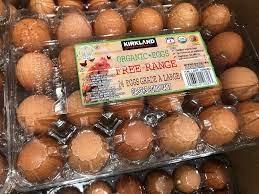The recent spike in inflation has increased consumer demand for store-brands according to IRI. Prior to the onset of COVID, store-brands were growing at twice the rate of national-brands. For the four weeks ending July 10th, store-brands represented 21.6 percent of grocery sales. This increase more than compensated for the losses that occurred during the COVID period when consumers preferred national-brands.

During 2020 and extending into 2021, manufacturers of national-brands were able to maintain volume by reducing the range of products and shoppers were less concerned over price than at present. Since the advent of inflation initiated by COVID spending, subsequent supply-chain disruption and the recent invasion of Ukraine by the Russian Federation, consumer preferences have shifted in favor of lower-priced items. Since there is little difference if any in quality attributes, many consumers will continue to buy store-brands when inflation is anticipated to moderate in the fourth quarter.
A wide range of lower-priced store-brands is now available, especially from the Kroger Company, Walmart, Costco and other big-box club stores and the deep discounters, including Aldi and Lidl. Availability, positioning on shelves, lower prices and equivalent quality are generating loyalty to house-brands. The recent optimistic statements by spokespersons representing major food companies predicting a return to national-brands suggest a measure of concern.

The shift in consumer preference towards house-brands will further reduce the margins generated by the manufacturers of branded products. They will be obliged to cut wholesale prices while facing inflation in raw materials, labor and transport. Concurrently manufacturers of national- brands are under pressure from the major chains. This is evidenced by recent events in the U.K. with disputes between manufacturers such as Kraft-Heinz and major supermarket chains including Tesco. Although this specific dispute was settled, it is presumed to have been to the disadvantage of the manufacturer.